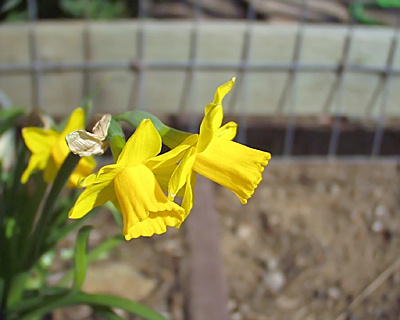All Nonfiction
- Bullying
- Books
- Academic
- Author Interviews
- Celebrity interviews
- College Articles
- College Essays
- Educator of the Year
- Heroes
- Interviews
- Memoir
- Personal Experience
- Sports
- Travel & Culture
All Opinions
- Bullying
- Current Events / Politics
- Discrimination
- Drugs / Alcohol / Smoking
- Entertainment / Celebrities
- Environment
- Love / Relationships
- Movies / Music / TV
- Pop Culture / Trends
- School / College
- Social Issues / Civics
- Spirituality / Religion
- Sports / Hobbies
All Hot Topics
- Bullying
- Community Service
- Environment
- Health
- Letters to the Editor
- Pride & Prejudice
- What Matters
- Back
Summer Guide
- Program Links
- Program Reviews
- Back
College Guide
- College Links
- College Reviews
- College Essays
- College Articles
- Back
Art, The Basis of Human Nature
“‘Mom, why is she different?’”
Andrea and her family would always visit the Minneapolis Institute of Art to look and learn about history through art. One of the things Andrea’s children were most engrossed in was the dollhouse. The dollhouse depicts a normal house in the earliest 20th century. The most notable thing the children saw was a black woman washing dishes in a corner. She was the only one who was different. That wasn’t white. They didn’t understand why this was so.
After a few years, the black figure in the dollhouse was gone. This was also noticed by the children. When the two children asked their mom about it, she realized it was an excellent chance for her to have a conversation about the past and what it was like for African Americans back then. Then she said, “Some people were ashamed of their pasts and so they requested the doll to be taken away”(Art Is Learning). In the video, she later stated that there’s no shame in things you can’t control and we should just learn about it. Andrea taught her children to keep learning and to keep moving forward.
This is a clear example of why art is crucial and didactic. While it was perhaps uncomfortable in some ways, it provided a valuable opportunity for the children to understand their family’s past. Art helps us communicate that through these kinds of things, we can learn things without being uneasy or feel attacked.
When people think of art, usually the first few things that generally pop up in their minds are just drawings and paintings. However, those definitions are just scratching the surface of what art truly is about. In fact, there are many more varieties of art out there in the world. Art also comprises of other various media like sculptures, printmaking, decorative arts, photography, music, and more (The Editors of Encyclopaedia Britannica).
Numerous people don’t realize how big of a role art plays in our lives and how much we depend on art in all of its forms in our everyday lives. Art in its assorted styles exists in every community, culture, and country (Five Reasons Why). Humans have been creating art from as early back as 39,900 thousand years ago through cave paintings (Weiss). Creating art is a primal behavior. Every culture has art. Like language and laughter, art is a fundamental human behavior. Put very simply, art is a part of who we are.
For us humans, art has always been a way of expressing our emotions, thoughts, or to simply share our stories and, experiences. Art is also a way of expanding new ways of thinking and communicating ideas that might not be possible to be understood through text or spoken words by itself.
Ever since I was born, my parents encouraged me to do art. Most of my artworks were just scribbles back then.
In the preface to the novel Dorian Gray, Oscar Wilde writes, “all art is quite useless” and to some extent, this is basically true (Art is Useless). If you are starving, you probably don’t really care about Van Gogh. If you have no water, I am sure you are not really interested in the intricate brush works of Cezanne. With that said, art is a creation mainly for creation’s sake and perhaps that is the most “human” thing about it. If we consider our cultures without the artistic achievement I think life would just be sterile and boring. Art is just as important as learning how to read or write. We need great minds and iconoclasts to push the boundaries and create timeless masterpieces for us to experience. It is important to challenge ourselves with art so that we can experience new ideas and reach new understandings about ourselves and the world in which we live.

Similar Articles
JOIN THE DISCUSSION
This article has 0 comments.

I always had a personal connection with art. Ever since I was born, my parents encouraged me to do art. Many people regard art as being unimportant and useless. I think it's important now than ever to write this article to inform people how crucial it is to our lives.